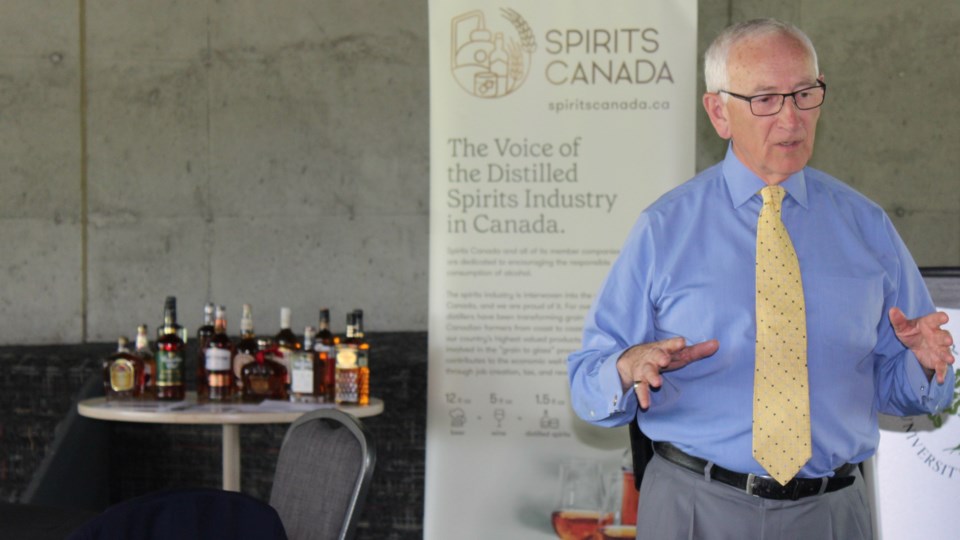Imagine an Ontario where you can pick up a bottle of whisky at the grocery store.
Spirits Canada wants the province to step up and allow the sale of spirits alongside beer and wine inside grocery stores.
While beer and wine have been in grocery retailers in Ontario since 2016, spirit distillers have one of two avenues to sell its product: direct at the distillery, or at LCBO stores.
That leaves distillers at the mercy of what the LCBO will accept in its locations.
"We've been fortunate enough to have four products accepted (at the LCBO), but we've submitted double that," said Paul Lachowich, the head of production at Elora Distilling Company.
"Some of them, they don't even taste them before rejecting them. They just decide they don't want them in there for whatever reason."
He said he understands the LCBO is a business and has product needs as well, but it can get frustrating.
He also pointed out 52 per cent of the price of a bottle of spirits is tax, whether it be to the federal or provincial government, so profit margins can get thin.
"On a $40 bottle of spirits, we're looking at getting $10 after that," he said.
"That pays for my salary, keeping the lights on, all the inputs and stuff like that. The actual amount we're making per bottle is pretty small."
Local distillers are also taxed at the same rate as the bigger producers like Crown Royal, but with less connections and distribution channels, it's tough playing on the same playing field with less of a budget.
"We got an order for a case of gin for the LCBO in North Bay, and we had to cancel the order because we had no way to get it there and make money off of it," Lachowich said.
So, what does a distillery do in this environment?
Lachowich said Elora Distilling has other means, from selling merchandise to selling an experience with cocktail classes, tours, non-alcoholic tonics and complimentary products.
But long-term, he said something definitely needs to be done to open more channels, to allow local distilleries to make more money.
He said he's fortunate to be located in Elora, a tourist town where people can come through and purchase products right at the distillery.
However, not all have that benefit.
It has forced closures of some distilleries, with others quietly struggling.
"It's unfair treatment," said Jeremie Dixon, president of Guelph-based Dixon's Distilled Spirits.
"It's really about the LCBO not wanting to give up their control on spirits."
Dixon said we see beer and wine in grocery stores, cannabis shops opening by the dozens, and spirits still have restrictions on where it can be sold.
He said there have been some changes in the last five years, with more LCBO agency stores in buildings like gas stations.
Dixon has looked outside of Ontario to sell his product, which he considers wins on the surface, but also a "risk reduction" because just banking on selling in Ontario isn't sustainable.
"You have to have a bigger dream," he said. "Just being in Ontario is too risky."
He said he considers it lucky that Dixon's can have six products in the LCBO. And he agrees with Spirit Canada's proposal to bring those products into grocery stores as part of a pilot project, which calls for selling spirits alongside beer and wine in Ontario.
"I just want the opportunity to compete," Dixon said. "I'll do the rest. But just let me at least have a shot at competing."
There is a slight bit of hope. Dixon said he's been informed Kitchener-Conestoga MPP Mike Harris Jr.'s office is taking a look at the matter, and has been reaching out to him for a conversation.
